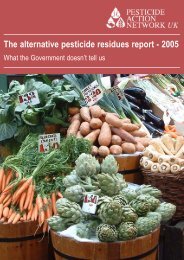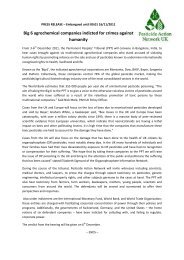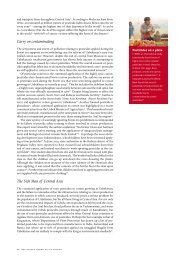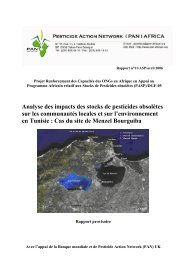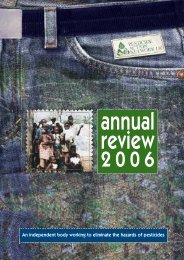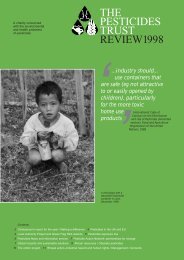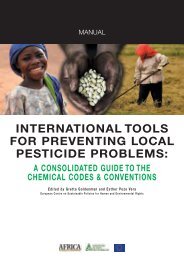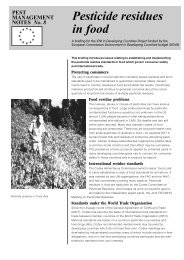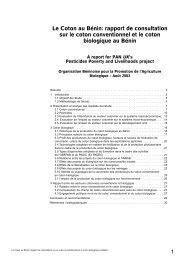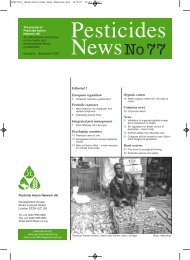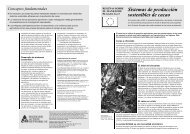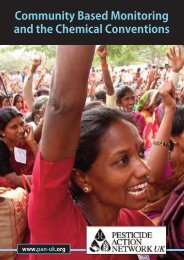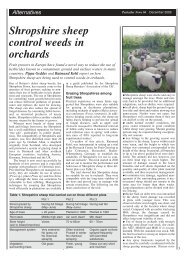Tanzania Multi Stakeholder Map - WebNG
Tanzania Multi Stakeholder Map - WebNG
Tanzania Multi Stakeholder Map - WebNG
Create successful ePaper yourself
Turn your PDF publications into a flip-book with our unique Google optimized e-Paper software.
ROTTERDAM CONVENTION<br />
Alcheraus J M Rwazo<br />
Tropical Pesticides Research Institute<br />
P O Box 3024<br />
Arusha<br />
1.0 INTRODUCTION: The Rotterdam Convention on Prior Informed Consent<br />
Procedure for Certain Hazardous Chemicals and Pesticides in International<br />
Trade was adopted on 10 th September 1998 and entered into force on 24 th<br />
February 2004. Therefore the Convention is now legally binding for its<br />
parties. Before entering into force, it was operated jointly by UNEP and FAO on<br />
voluntary basis as the Interim Prior Informed Consent (PIC) procedure.<br />
The convention aim at promoting shared responsibility and cooperative efforts<br />
among parties in the international trade of certain hazardous chemicals, in order<br />
to protect human health and the environment from potential harm and to<br />
contribute to their environmentally sound use by facilitating information exchange<br />
about their characteristics, providing for a decision making process on their<br />
import and export and disseminating these decisions to Parties.<br />
The Convention covers pesticides and industrial chemicals that have been<br />
banned or severely restricted for health or environmental reasons by Parties<br />
and which have been notified by these Parties. At present, the PIC procedure<br />
covers twenty-nine hazardous pesticides and nine industrial chemicals. For<br />
industrial chemicals, the scope of the Convention is limited to formulations<br />
and mixtures. As a result, manufactured items that are traded internationally and<br />
that contain chemicals listed under the PIC Procedure are not subject to the<br />
provisions of the Rotterdam Convention.<br />
2.0 THE KEY IMPLEMENTERS<br />
2.1 Parties and Designated National Authorities<br />
Parties are countries or regional economic integration organizations that have<br />
ratified, accepted, approved or acceded to the Convention. A party is required to<br />
appoint one or more Designated National Authorities. These are primary contact<br />
points for matters related to the operation of the convention and may perform<br />
the administrative functions required by the Convention.<br />
2.2 Conference of the Parties (COP):<br />
Oversees the operation of the Convention and make decisions regarding<br />
amendments of the Convention including the inclusion of a chemical.<br />
2.3 The Chemical Review Committee (CRC)<br />
78




